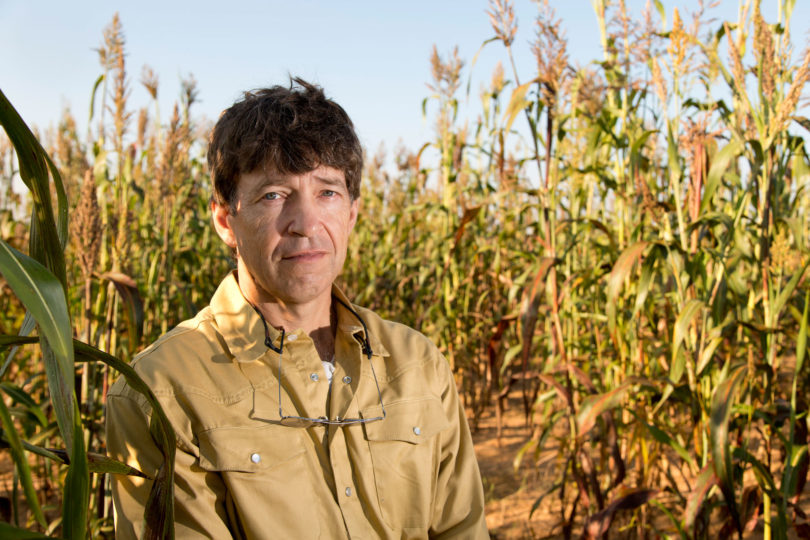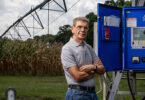Athens, Ga. – An international team led by the University of Georgia’s Plant Genome Mapping Laboratory will work toward sustainable intensification of sorghum production through a $4.98 million grant recently funded by the U.S. Agency for International Development as part of Feed the Future, the U.S. Government’s global hunger and food security initiative.
Through the new Feed the Future Innovation Lab for Climate-Resilient Sorghum, UGA and partner researchers will use new genomics tools to address urgent needs for a more drought-resilient food supply, increase rates of sorghum improvement to better meet long-term population growth, and investigate production systems that promote sustainable farming, particularly regarding preservation or restoration of soil resources and water quality.
Sorghum is sometimes called “the camel of cereals” because it is able to grow in arid climates prone to drought, which has made it essential in areas like the Sahel region of Africa where it is often too dry to grow other cereals. Despite its importance, sorghum improvement has lagged behind that of maize, wheat and rice.
Although sorghum is the most drought-tolerant of the world’s major cereal crops, moisture stress remains one of the major constraints to its production. With a worldwide water crisis looming, a primary goal of the new project is to improve drought and heat tolerance, mitigating threats of drought to food security.
The researchers also seek to transform sorghum production systems to reap multiple crops from single plantings, increasing the extent and duration of soil cover by plant roots to mitigate disadvantages of conventional annual crops including soil erosion and nutrient leaching. Spreading seed and soil preparation, or sowing costs, over multiple cropping cycles may also permit smallholders to be able to afford hybrid seed and benefit from hybrid vigor.
“We have spent 20 years building genomic tools and developing a fundamental knowledge of sorghum,” said the project director, UGA Regents Professor Andrew Paterson. “This is an exciting opportunity to put all this research to work, improving human lives in some of the most impoverished parts of the world while also advancing progress toward a more bio-based economy through sustainable intensification of agricultural production.”
Sorghum was the first plant of African origin to have its genome sequenced, as published in 2009 in an international effort also led by Paterson, who heads the UGA Plant Genome Mapping Laboratory.
The research team includes partners from the International Crops Research Institute for the Semi-Arid Tropics (India and Africa), Jimma University (Ethiopia), The Land Institute (Kansas, USA), and the Agricultural Research Council of South Africa.
Discoveries during and beyond the five-year project duration will feed directly into uptake and delivery programs through well-established links between the collaborating institutions and farmer networks in India and West Africa, East Africa, South Africa and internationally.
The U.S. Agency for International Development
The U.S. Agency for International Development is an independent agency that provides economic, development and humanitarian assistance around the world in support of the foreign policy goals of the United States. As stated in the President’s National Security Strategy, USAID’s work in development joins diplomacy and defense as one of three key pieces of the nation’s foreign policy apparatus. USAID promotes peace and stability by fostering economic growth, protecting human health, providing emergency humanitarian assistance, and enhancing democracy in developing countries. These efforts to improve the lives of millions of people worldwide represent U.S. values and advance U.S. interests for peace and prosperity. For more information, see www.usaid.gov.
Feed the Future
Feed the Future is the U.S. Government’s global hunger and food security initiative. With a focus on smallholder farmers, particularly women, Feed the Future supports partner countries in developing their agriculture sectors to spur economic growth and trade that increase incomes and reduce hunger, poverty and under nutrition. For more information, see www.feedthefuture.gov.





